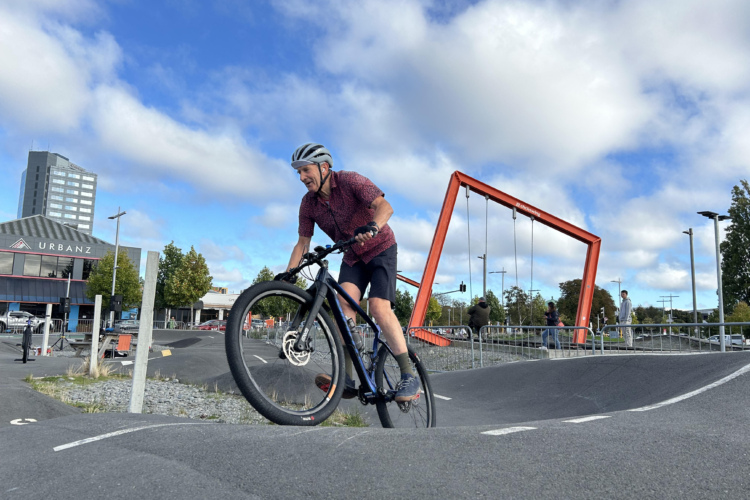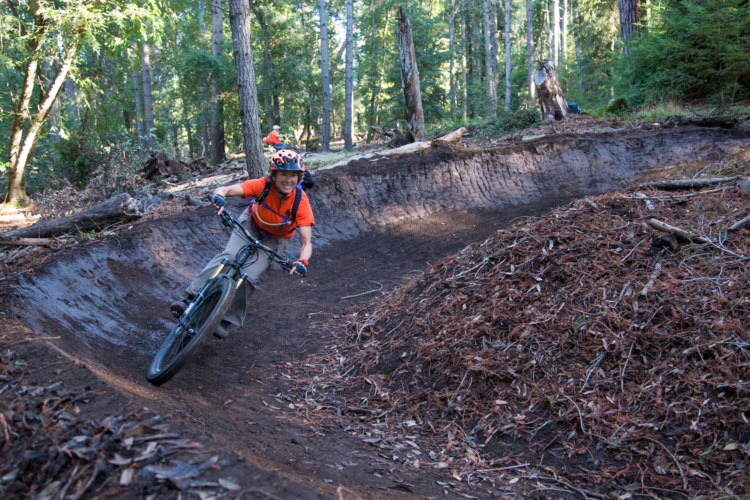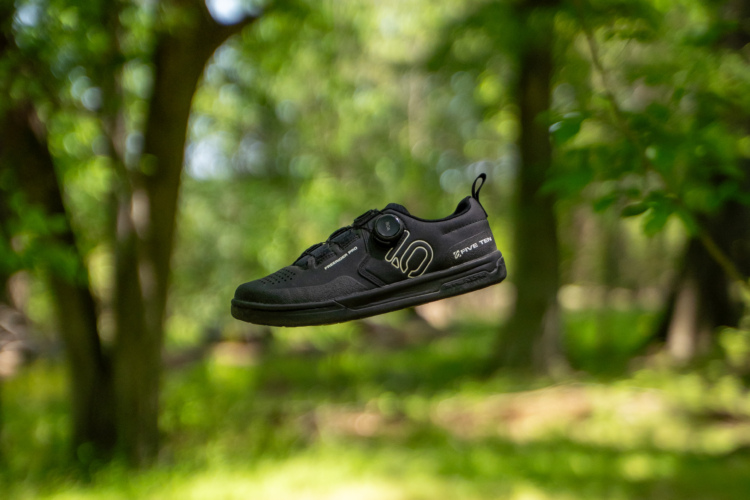
A really small great thing happened the other day. I had just purchased a new bike (Specialized Epic Expert, if you must know. Good for the metric f*%# ton of climbing I’ll be doing in the Trans Alp race), and while that in itself is pretty happy-making as you, dear reader, well know, the young man who was wrapping up the sale asked me a question. I am a 46-year-old female and have been riding bikes—mountain and other—for 25ish years. I do not consider myself particularly sensitive to gender slights. I was a horse trainer for many years—a man’s world if there ever was one—and much like women cook but only men are chefs, girls are allowed to love horses, but only men are trainers. My point is, I’m used to working and riding with men, and I don’t go sniffing out sexism—there’s quite enough just laying around.
Like the time on a road ride with three girlfriends high above the Pacific on the shoulders of Mount Tamalpais, three men were on the side of the road, one bike wheels up, disassembled. As we rode by, I inquired, as is my habit when spotting fellow riders in distress, “You all set?” this being universal good manners, an offering of tube, pump, patch, whatever. In response, a fake girly saccharine voice “Oh! Can you fix my flat for me?” accompanied by a little prancy dance and hysterical laughter from the three of them. I didn’t get it at first and I unclipped, starting to pull over thinking they really needed help. My friend Kathy urged me along, let me know they were mocking me.
Or the opposite example that occurred during the Downieville Downhill race. My race—sport women—was last on the mountain, which of course made perfect sense. This meant that Mark Weir, Adam Craig, Katerina Nash and Rachel Lloyd were long since changed out of their kits and swimming in the river as I bombed (relatively speaking) down the mountain. A young guy on the side of the trail with a flat had the balls to try to flag me down for a tube and a pump. Since only racers were allowed on course that day, it is safe to assume that he was from the last of the sport men’s class. That and the fact that I had a number on virtually remove the possibility that he just didn’t know. Now sure, maybe this guy’s just an idiot and would have asked a racing bro for a spare during his run, but somehow I doubt it. I suspect that he thought ladies racing was just kind of cute, not a serious pursuit that we might have worked hard for. And what the heck, if a chick was dumb enough to stop for this douche who opted to run light for the race with no tube and pump, well then good for him and shame on her.
Some of my friends take exception to dudes jumping in and offering to fix their flats. I do not. If you want to fix my flat for me, have at it. Just don’t assume I can’t. Another friend doesn’t want you to compliment her when she rides over a stick in the trail—if you wouldn’t make hay about a dude riding over that stick, don’t make it a big deal if a chick does it. Fair enough.
But back to the question in question. The young, good-looking sales guy, maybe 27, 28 years old, was clearly steeped in the bike industry, a racer, and generally hip to the scene.
“Do you work on your own bike?”
My mouth smiled without me, my head cocked slightly to the side. He noted my odd response.
“I was going to tell you about our extended warranty program, but it seems like maybe you might work on your own bike, in which case I’ll save my spiel…?”
I don’t think I’ve ever had anyone think it was a possibility that I work on my own bike. Now, in truth, the actual answer is “sorta.” I change my own tires and replace my own brake pads, but that’s about the extent of it. In truth, I hate working on my bike—it’s just not my thing. But several of my girlfriends are the geeky engineer type who either do or would if they had the time. But all of that is beside the point. It was a simple question he asked me, and it wasn’t on a checklist, he wasn’t trying to “be inclusive”—he just was. It was such a small thing, a small but vital signal that in this one corner of one part of one industry, fundamental change may be afoot. And the fact that it didn’t even occur to him that he had just done something special was exactly what made it so.






















1 Comments
Nov 5, 2021